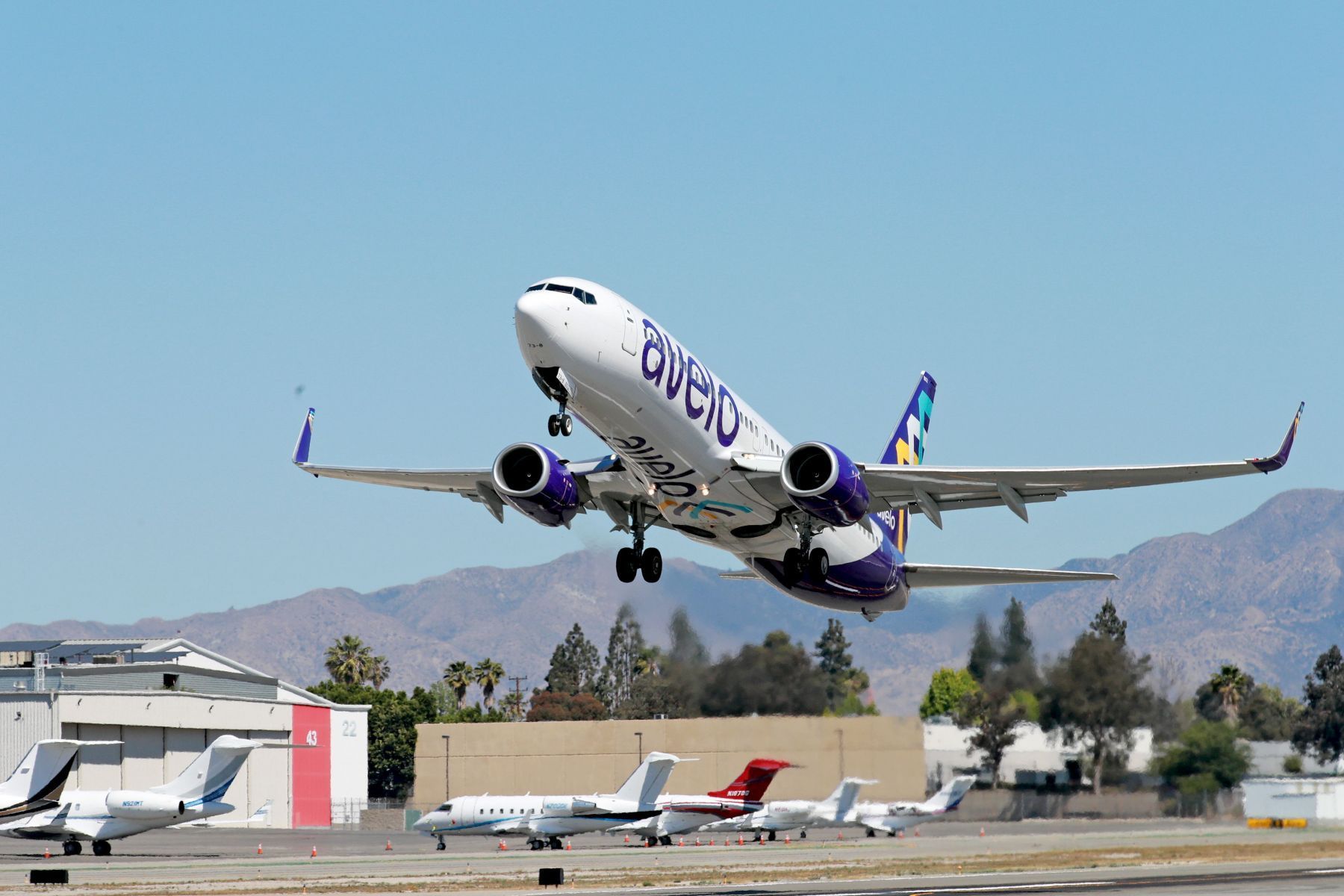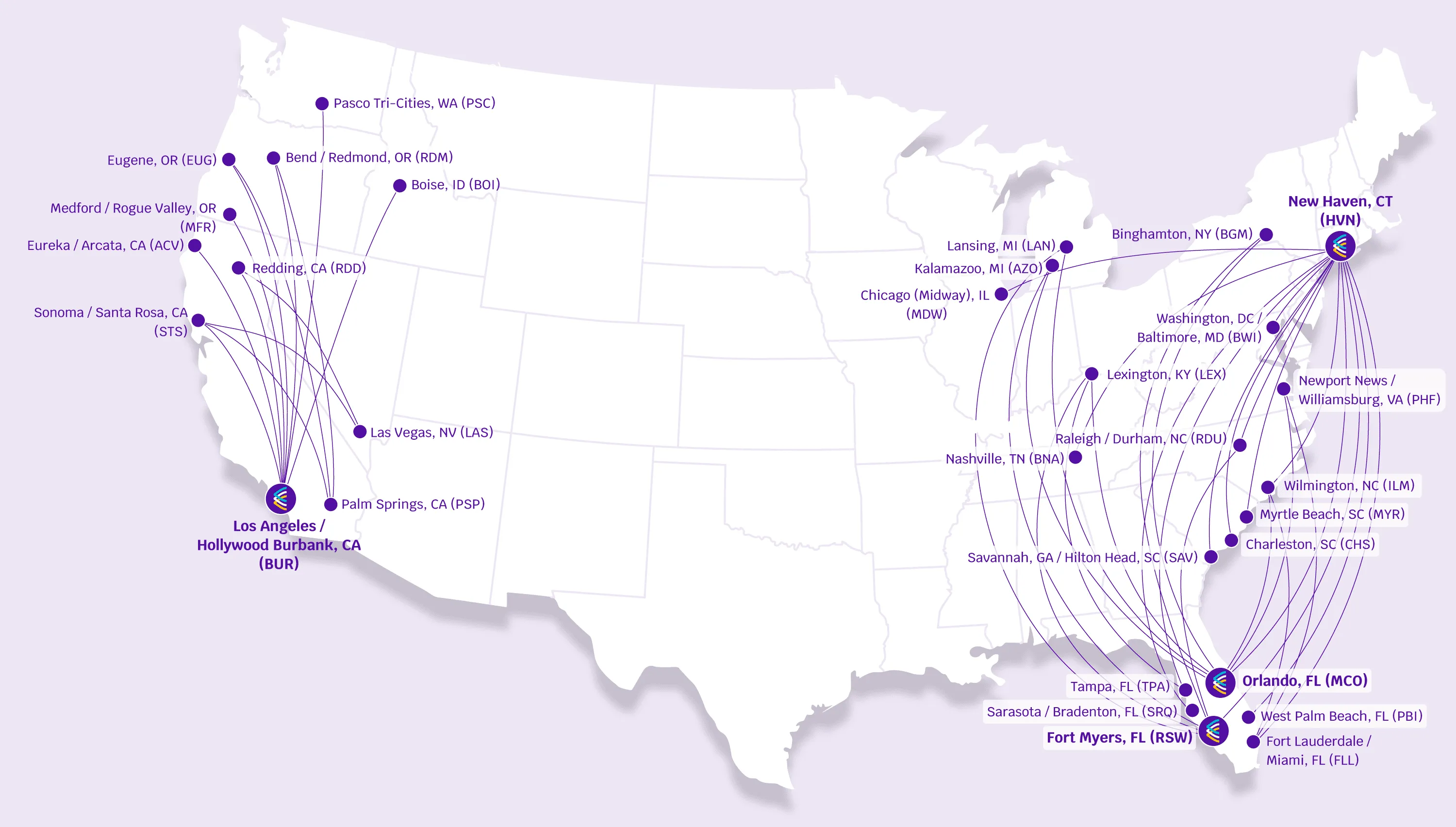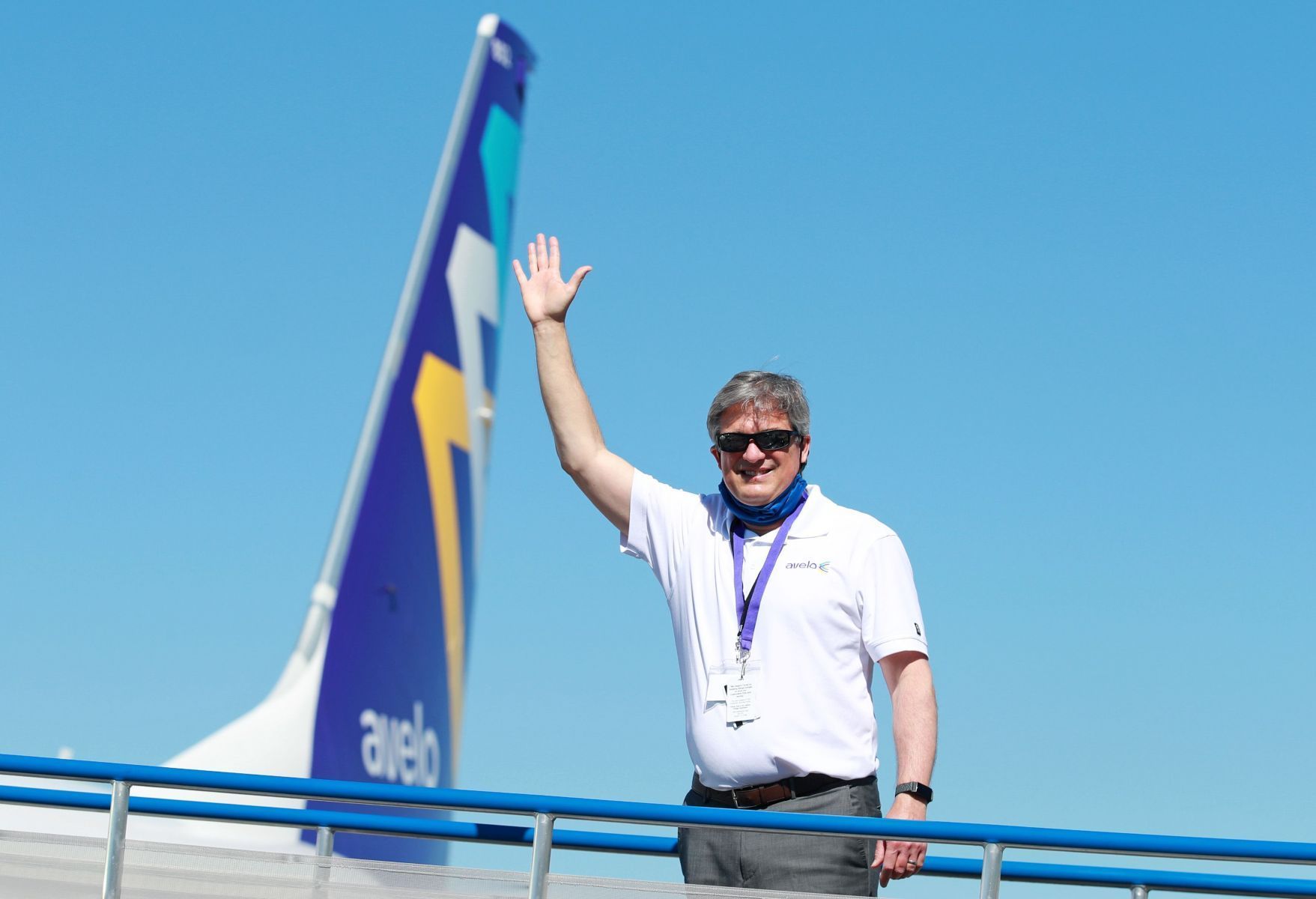Avelo launched in April 2021 with a base in Burbank, California. From there, it connected 11 unserved destinations with this small, easily navigable airport, and rapidly began building quite a presence on the west coast. But just a month into its journey, Avelo made a rather surprising announcement – the opening of its second base, in Tweed New Haven, Connecticut, on the opposite side of the United States.
Today, Avelo has four bases – Los Angeles / Hollywood Burbank on the west coast, and New Haven, Orlando and Fort Myers on the east. Its network operates in tandem silos, active on both sides of the US, but with nothing connecting its network in the middle.
Simple Flying sat down with Andrew Levy, President and CEO of Avelo Airlines, to chat about this two-sided strategy and how it came about. He explained,
“We liked Burbank at the time when we started it, we thought that was the best opportunity out there. And there was a moment in time where we could get into to an airport that's a very difficult airport to get into. New Haven was the same. In a perfect world, they wouldn't be on opposite coasts from one another. But that's okay, we're all used to managing across multiple time zones. And they'll each stand on their own two feet, and that's okay.”
Will Avelo connect its two sides?
Most would take one look at this route map and immediately see the potential for a transcontinental service linking up the two sides of the network. But not this airline CEO. Levy told us,
“I’d do transcon tomorrow if I thought we could make money doing it. Quite honestly, at the end of the day, I view the business pretty simply - it's an out and back network. Which means the airplanes come home every night, and there's no connections, there's no throughs, everything’s L and D.”
Having a simple network with no planes parked away from home has made it easier for Levy and his team to evaluate new route additions and pursue those that make the most sense. Adding something longer into the mix would disrupt that model, and it’s not something he’s in a hurry to do.
Transcon is tough in the USA
As well as launching while COVID was still most definitely a concern, Avelo has been hit hard by the surging fuel prices caused by the conflict involving Russia and Ukraine. That high fuel price alone makes transcontinental service less appealing than it might have been, but that’s not Levy’s only concern. He said,
“I think transcon is really tough to make work, especially with really high fuel prices, but it's tough to make work in this country because there's so many hubs that you have to overfly and every hub you overfly is an opportunity for there to be a lower cost connecting fare offered by legacy airlines.”
Levy offered an example of a connection between his original two bases – New Haven and Burbank. This trip could be completed with a connecting flight through any number of major airline hubs – Chicago, Denver, Dallas, Salt Lake, even Atlanta to some extent. The more connecting points there are in the network, the more it would put yield pressure on an airlne like Avelo. He summarised,
“I'm not a big believer in transcon being viable for our kind of business. No doubt businesses that are carrying a lot of investment bankers that are flying back and forth between New York and LA, paying top dollar – that’s a different ballgame, but that's not who we are.”
When transcon is not transcon
Levy did note that, perhaps, eventually, the two networks would join together, but not with a big transcontinental leg in the middle. Rather, it would be a series of stopping points flowing between west and east, as he described,
“Eventually, I do think that there will be opportunities to have airplanes kind of flow east-west with points in the middle. But that's not really a priority at all. My priority is just making sure that everything we do is working as well as it can work.”
And working well it is. The airline is running at just a 1% cancellation rate over the summer season – 99% of its scheduled flights flew as promised. That alone is reason to be proud of what the airline is doing, but it’s only going to get better. With a strong focus on connecting unserved communities, and letting people fly out of their hometown airport with affordable fares and great service, Avelo’s journey is just beginning.
You can watch the complete interview on our YouTube channel below:



